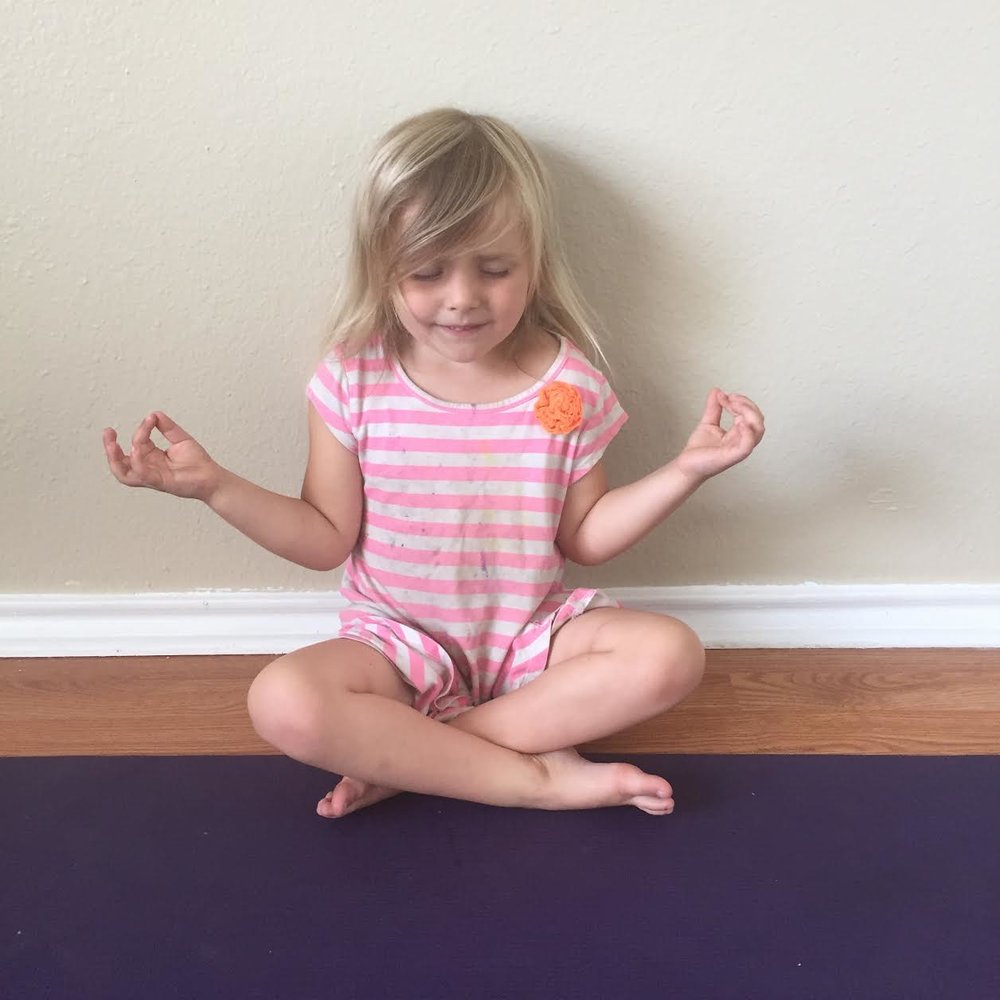I hate those bad parenting lists.
You know those lists.
The ones that tell you all the things you shouldn’t say to your kids that you probably already say.
Or the ones that tell you all the ways you are screwing up your kids by letting them watch tv or
The lists are well-intended. I’m sure they are. They have to be. I mean, no parent in their right mind would create a list of criticisms disguised as suggestions aimed at their fellow parents with the intention to shame them into better behavior, would they?
Because I am a glutton for punishment, I do still read these click-bait lists and sometimes I have the opportunity to congratulate myself for my kickass parenting. Other times I want to throw my computer across the room.
Before I’m filled with enough rage to destroy expensive technology, I often notice one item that appears on almost every list I read.
“Don’t Tell Your Kids to Calm Down.”
This is the one that really gets me because the ability to keep a cool head or harness your calm during really challenging moments is a life skill everyone should have.
I understand why it’s on the list.
Kids are allowed to have emotions. They’re allowed to freak out, to be afraid, to panic, to cry, to scream, to be frustrated, and to be angry. Asking them to be calm when they are in the middle of having any combination of those emotions is unfair.
However, teaching them how to calm down and how to keep calm when the shit hits the fan will serve them better in the long run than allowing their emotions to have full reign over their actions and help them navigate life more gracefully.
Let me tell you a story:
A few weeks ago, we went tubing on a fairly mellow river near our home. We’d been a few times before and this was the last time we were going to go this season because it’s only fun have your butt submerged in the water for 2 hours straight when it doesn’t feel like you’re sitting in an ice bucket.
The great thing about this river is that it only has a few rapids and the water is fairly shallow, so it’s very family friendly. We all love it.
My 4 year old daughter loves tubing. She’s just learning how to swim and loves being in the water. She also loves panicking at the drop of a hat for almost no premeditated reason.
So, we were in our tubes, floating down the river and Milly wanted to hop out to swim. She was wearing a life jacket and she’s been taking swimming classes and is generally very confident in the water, so we let her get out of the tube. My husband was still holding onto her as she kicked and splashed in the water. At first she was fine and then, out of nowhere, she started freaking out. She started screaming, flailing her arms and thrashing around.
Clearly she was scared. Flailing and thrashing wasn’t helping though. She needed to calm down.
So I said to her in a very steady voice, “Milly, be calm. Everything is ok. We’re here. And we can help you. But you need to calm down.”
She kept freaking out.
My husband tried, too, saying almost the exact same thing.
She kept freaking out.
So I tried one more time. This time I said, “It’s really important for you to be calm so we can help you. You’re safe. You have your life jacket on. Mommy and daddy are here with you. Can you try being calm for a few seconds and then go crazy again?”
She started to listen and calmed down a bit and then thrashed around again, so I said, “good. Let’s try that again. Can you be calm for a little longer? Take a few deep breaths, look me in my eyes, and breathe with me. This is your ‘calm training’. Being calm is going to be your superpower.”
She swam outside of the tube for most of the rest of the trip down the river.
In the case of swimming, staying calm is helpful because if you’re flailing constantly and panicking, you could wear yourself out and drown faster.
Outside of the water, though, we’ve had other moments in which finding calm has been beneficial. In fact, a few times, Milly has turned it back on me reminding me to get calm when she notices me getting agitated.
“Just breathe, mama” is something she has said to me on numerous occasions. And each and every time she has said it, I’ve totally needed the reminder.
She’s also told me to calm down which I appreciate less, but I can usually recognize why she’s saying it and why it will help. Most of the time, anyway.
The benefit of being an adult is to be able to step outside of those emotions and figure out how to act on them in a more skillful way. Or at least that’s the idea. I’m still working on that part.
When my daughter tells me to calm down, I do get a little cranky and my own inner 4 year old rises to the surface, “BUT I DON’T WANT TO CALM DOWN! I WANT TO RAGE AND BE ANGRY AND STOMP AROUND AND SCREAM.”
I also know from personal experience that it doesn’t ever work out as well as I want it to when I give in to those hyper emotional actions.
So I try to breathe.
I try to locate the bits of calm that got shredded in the vitamix of my emotions.
I close my eyes and breathe some more.
Sometimes I walk away.
Sometimes I say a mantra (usually it’s “be peaceful” or “be calm” or “be cool, baby”).
And often it works.
Calm is a life skill I am only now starting to learn at 36. Even though I know she can’t yet grasp the complexity of emotions or actions tied up in all of this, I’d like my kids to learn to be calm and keep their cool sooner.
This is what I teach my daughter when she gets frantic and stressed out and will one day teach my son:
1. Look at me in my eyes and see that I love you.
2. Take a few deep breaths. Inhale and exhale. JUST BREATHE.
3. Let’s breathe together.
4. Now close your eyes and keep breathing.
5. How does your body feel? Does your neck hurt? Your tummy? Your jaw? Your face? Can you relax those muscles and make them softer?
6. Keep breathing.
7. Calm is a superpower. Let’s be superheroes of calmness. Let’s be calm ninjas. (or Princesses of Peace. Whatever works)
After this, we usually have a conversation about why she felt so crazy before the calm and what we can both do differently. It doesn’t work everytime, but it does work a lot of the time.
The point is, we’re both still working on it. The point is also that we’re not denying the big emotions she’s having. Instead, we’re trying to get to a place together in which she can actually understand them and explain them and deal with them. And hopefully, we can find a way to get to the other side of those big, intense emotions together.
Emotions are rocky places for most people. I’ve struggled with anger for my entire life. I don’t expect this to fix everything or take away the everyday frustrations that she is bound to have.
I also don’t think that telling kids to “BE CALM is a grave parenting error. I think that instead the idea of being calm and learning how to create a sense of calm can be an invaluable skill that will support her throughout her life. And the earlier she learns how to harness her calm, the better.
And just the other day, Milly said to me, “Mommy, I want to learn how to meditate. Can you teach me to meditate?”
Be still my heart.



